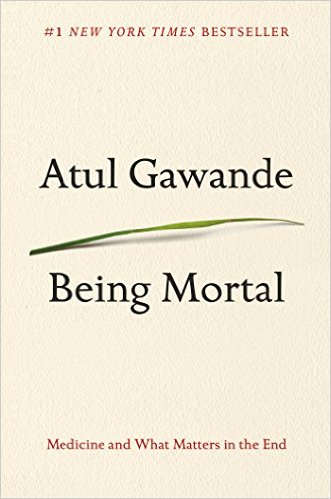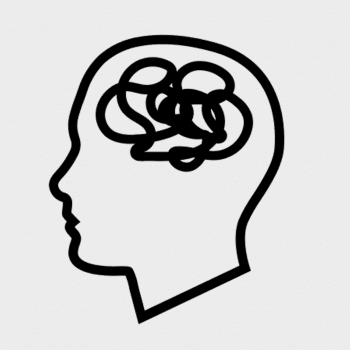Because of modern medicine, we live longer now than any time in human history. But as we grow closer to death, medicine fails to address our human needs and desires. Ultimately, it may do more harm than good.
This is Atul Gawande’s grim conclusion in Being Mortal: Medicine and What Matters in the End. The author is a distinguished surgeon and public health specialist, and certainly believes in the importance of medicine. But he argues that, if medicine is to assist people in their old age, its focus must change.
Although I agree with his conclusions, Gawande’s analysis is problematic in a few ways.

Overview of Being Mortal
Revolutionary advances in modern medicine have transformed the course of our lives, allowing us to overcome injury, childbirth, and infectious disease. However, medicinal advances cannot free us from aging and death. Microcellular problems — such as oxygen free radical damage, lipofuscin, and DNA damage — gradually accumulate, wearing the body down until it inevitably stops functioning.
Throughout this process, geriatric care can preserve what matters most to the aging individual. It can reduce her suffering, foster her dignity and agency, and strengthen her relationships.
But these ways of bolstering resilience in old age are difficult and unappealingly limited. As such, modern medicine has taken a different approach.
In nursing homes, the elderly are subject to dehumanizing restraints, a lack of spiritual and social care, and reductions in their choice and agency. In hospitals, doctors turn medical means into ends, and extend suffering in their efforts to extend life.
The assisted living movement was initially intended to create a home for the aging, where they can live with dignity and agency. It aimed to help residents with comfort, companionship, and their ability to meet their own needs. But financial and practical considerations distorted this mission. Assisted living has become just another way station on the way to a nursing home, just another part of the medicinal continuum of care.
Gawande calls for us medicine to return to humane and dignifying care. Yes, medicine should be used to extend life. But we must focus on what matters in the end, rather than just delaying that end as much as possible.
What does Being Mortal have to offer?
Throughout the book, Gawande seamlessly combines rigorous research with moving personal testimony. Drawing not only on his experience as a surgeon, but his family and community life, Gawande offers examples of ways of aging — and dying — well.
And the good news is the medicine is changing. Despite his bleak thesis, Gawande presents a number of models of care that respect the wishes and desires of the aging individual. New forms of assisted living for the disabled and aging show that medicine has much potential, when used in the right way. Such humane care offers measurable positive outcomes in the aging individual’s health, and the well-being of their family members.
Where does Gawande go wrong?
Right from the introduction, I knew I wasn’t going to be satisfied by this book. And I was right, in three ways.
1. Autonomy and independence
Gawande frames his discussion on the basis of independence and autonomy, equating them with quality of life. Everyone, even the frail, desire some measure of control over their lives. This is true, and it is not a bad thing. But Gawande writes that the desire “to retain the autonomy — and freedom — to be the authors of our lives… is the very marrow of being human.”
This is false. We are inherently relational, dependent creatures. Though we are taught by our individualistic culture – and our baser instincts – to desire total autonomy, this is not freedom. Radical independence, in my opinion, is a marker of low quality of life rather than high quality of life.
As such, being a burden to our families and communities not inherently a bad thing. It is a natural part of life, an essential part of relationship. This is especially true of the aging process, and should not be considered a medical failure. The goal of medicine, then, should not be to restore total independence and autonomy to the aging individual at all costs.
2. Keeping dignity “intact”?
Gawande writes that medicine should help the aging reach the end of their life with their dignity intact. By this, he means that medicine should work to preserve cognitive and physical capacities. He also means that medicine should not artificially extend of life’s duration at the cost of its quality. I agree with these two conclusions.
However, there is a false premise to his argument. By his exhortation to preserve the dignity of the aging, Gawande implies that one’s dignity is reduced by cognitive and physical decline, as well as by excessive artificial extension of one’s life.
I disagree. Our dignity as humans is independent of our health, and independent of the care we receive. The origin of our dignity is not in our cognitive capacities; no matter what Descartes might tell us, our essence is not a thinking thing. Our dignity is not derived from our physical health, nor can it be damaged by improper medical care.
Dignity is inherent and cannot be broken. Rather than preserving dignity, humane medical care respects it.
3. Total empiricism
Gawande appears to be a thoroughgoing empiricist, buying into the Humean understanding of the self as a mere “bundle of experiences.” He proposes that life is understood as a cumulative narrative of pleasure and pain, and that judgments about the meaning of emerge out of this collection of your experiences. Nothing larger than yourself comes into play; the only origin of meaning is “the chance to shape one’s story.”
This is a woefully inadequate understanding of the self. In particular, it neglects our deep need for transcendent meaning. This is a particularly conspicuous absence in Gawande’s work, because our need for meaning only increases as we approach death. Furthermore, suffering can be one way of finding transcendent meaning, but Gawande seems to see no value in it.
So on the whole, Being Mortal is a valuable book, but it that raises more questions than it answers.
Further Reading Recommendations
I’m in the process of reading Alasdair MacIntyre’s Dependent Rational Animals, which presents an alternative to Lockean individualism and autonomy.
For another (better, in my opinion) take on the question of life and death, I highly recommend Viktor Frankl’s Man’s Search for Meaning.












